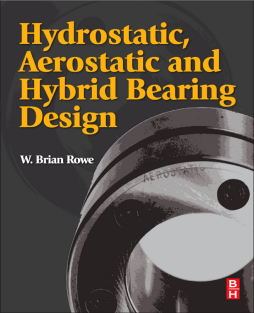
Additional Information
Book Details
Abstract
Solve your bearing design problems with step-by-step procedures and hard-won performance data from a leading expert and consultant
Compiled for ease of use in practical design scenarios, Hydrostatic, Aerostatic and Hybrid Bearing Design provides the basic principles, design procedures and data you need to create the right bearing solution for your requirements.
In this valuable reference and design companion, author and expert W. Brian Rowe shares the hard-won lessons and figures from a lifetime’s research and consultancy experience. Coverage includes:
- Clear explanation of background theory such as factors governing pressure, flow and forces, followed by worked examples that allow you to check your knowledge and understanding
- Easy-to-follow design procedures that provide step-by-step blueprints for solving your own design problems
- Information on a wide selection of bearing shapes, offering a range and depth of bearing coverage not found elsewhere
- Critical data on optimum performance from load and film stiffness data to pressure ratio considerations
- Operating safeguards you need to keep in mind to prevent hot-spots and cavitation effects, helping your bearing design to withstand the demands of its intended application
Aimed at both experienced designers and those new to bearing design, Hydrostatic, Aerostatic and Hybrid Bearing Design provides engineers, tribologists and students with a one-stop source of inspiration, information and critical considerations for bearing design success.
- Structured, easy to follow design procedures put theory into practice and provide step-by-step blueprints for solving your own design problems.
- Covers a wide selection of bearing shapes, offering a range and depth of information on hydrostatic, hybrid and aerostatic bearings not found elsewhere.
- Includes critical data on optimum performance, with design specifics from load and film stiffness data to pressure ratio considerations that are essential to make your design a success.
